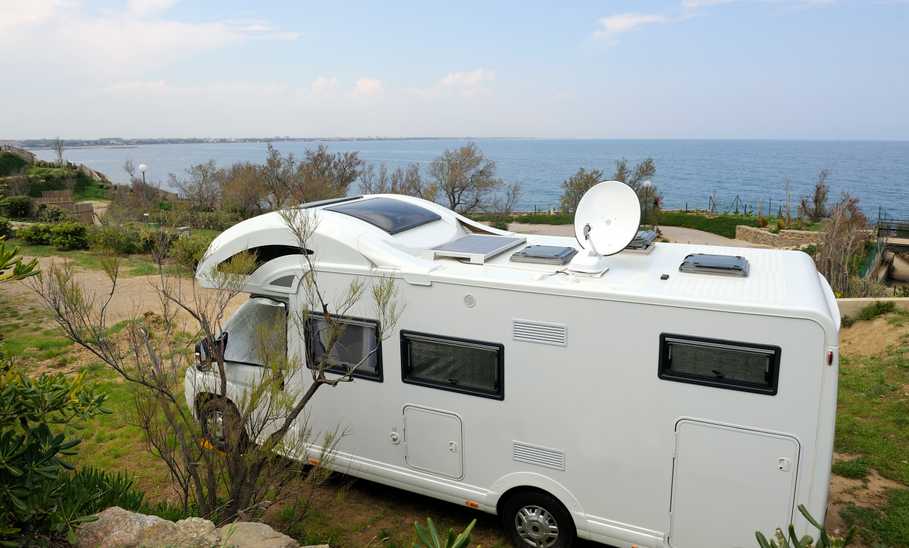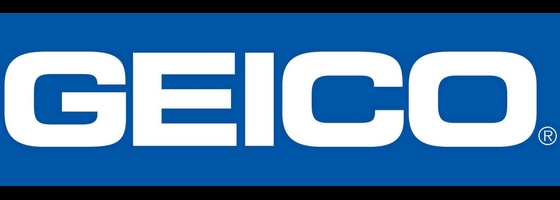An RV, short for recreational vehicle, can be one of the most convenient and comfortable ways to travel, particularly for those who agree that the journey is as important as the destination. Although it’s not as fast as flying, RVs give drivers the opportunity to slow down, enjoy the scenery, and, perhaps most important, bring everything they’d like along for the journey—literally including the kitchen sink.
But like any mode of transport, RVing does come with risks—not just to life and limb, but to your wallet. While a separate RV insurance policy isn’t always required (depending on which state you live in and whether your RV is a drivable motorhome or a towable trailer), taking out one of these policies can help you cover your liabilities in the unfortunate event of an accident, not to mention covering the vehicle itself and the personal belongings you might keep inside it.
Here’s our take on the best RV insurance providers on today’s market.
|
| |
| |
| Those who rent their RVs to others |
| |
| |
| Those who need coverage in Mexico |
Our recommendations
Let’s take a closer look at our six picks for the best RV insurance providers in 2024.
Best for overall coverage
Best for overall coverage
Progressive RV Insurance
Already a well-known insurance provider whose name may appear on your auto, homeowners, or renters insurance policy, Progressive also offers some of the most comprehensive RV insurance coverage on the market. Its full list of RV insurance coverages include options that can be harder to find among competitors, including pet injury coverage, pest damage protection, and vacation liability. It also offers an RV insurance policy designed specifically for full-time RVers.
Better yet, its RV insurance policies start at just $125 per year. This is substantially lower than the annual averages estimated by J.D. Power, which vary depending on RV type but start at $200 (and range to over $1,000). However, available Progressive discounts can vary by state, and many of its extra coverages are just that—extra, and not included in its standard coverage option.
Pros:
- Many types of coverage available.
- Multiple discounts available, including multi-policy, original owner, and responsible driver discounts.
- Large insurer offering many different types of coverage, allowing for one-stop shopping.
Cons:
- Discount availability varies by state.
- A la carte coverages can rack up higher premiums.
- Two-star Trustpilot customer service reviews.
Best for easy online quotes
Best for easy online quotes
RV Insurance
You already know that shopping around is the best way to find the best coverage at the best price—but the process can entail a lot of footwork. RV Insurance allows you to get all that footwork done by filling out a single quote request form online, connecting you with policies from Foremost, National General, and Safeco. (RV Insurance is not in itself an insurance agency, but rather, a broker.)
However, working with a middleman can unnecessarily complicate the equation when it comes to customer service needs or filing claims. Furthermore, the RV Insurance live customer service team is not available 24/7 and has especially limited weekend hours when, perhaps, travelers may need help the most..
Pros:
- Can connect RVers with multiple policy options, providing better shopping opportunities.
- Various discounts and coverages available depending on insurer and plan.
Cons:
- Not a direct insurance carrier.
Best for those who rent their RVs to others
Best for those who rent their RVs to others
Roamly RV Insurance
These days, it’s not unusual for RV owners to rent out their RVs to others on platforms like RVshare or Outdoorsy—think of it as Airbnbing your rig. But this relatively new practice is a bit of a gray area for many insurers. Not so with Roamly, which explicitly states that your coverage won’t be jeopardized by your decision to rent your RV on the peer-to-peer market.
Additionally, Roamly offers coverage for DIY camper van conversions and other non-traditional rigs. Its policies were designed by RV owners, so they’re built with the real needs of RV drivers in mind. However, the company exclusively specializes in RV, boat, and carshare insurance, so you’ll need to find your regular auto and homeowners policies elsewhere.
Pros:
- Hard-to-find coverages, including for those who rent their RV on the peer-to-peer market.
- Four-plus star rating on Trustpilot, indicating customer service satisfaction.
- Designed by RV owners and built specifically for RVers’ needs.
Cons:
- Specialty insurer that doesn’t cover basics like homeowners and auto (or allow for those bundling discounts).
Best for multiple discounts
Best for multiple discounts
Nationwide RV Insurance
Getting high-quality RV insurance coverage? Good. Getting high-quality RV insurance coverage with as many discounts as possible to help lower your overall premium cost? Better. Nationwide stands out from the crowd with its wide range of available discounts, including multi-policy and multi-vehicle bundling discounts, as well as deals for taking an RV safety course, being a responsible driver, being a member of an RV association, and more.
Nationwide’s standard RV insurance coverage includes bodily injury and property liability, as well as comprehensive, collision, under/uninsured motorist coverage, and medical payments. Subscribers can also choose from an array of optional coverages, including roadside assistance, vacation liability, and safety-glass replacement. And, of course, they can also buy their auto and homeowners insurance policies through the same company, allowing for both convenience and additional bundling discounts.
Pros:
- Multiple available discounts can drive down premium prices.
- Nationwide offers a wide range of insurance coverage policies, including homeowners, renters, auto, and even pet insurance.
Cons:
- Fewer additional coverage options than some competitors.
- Suboptimal customer service review ratings on Trustpilot and BBB.
Best for easy-to-use app
Best for easy-to-use app
Geico RV Insurance
In an increasingly mobile world, the option to manage your RV insurance policy—or even file a claim—through a mobile app is more than just a bonus. Geico’s mobile apps boast near-five-star reviews on both the Android Play Store and Apple App Store, and the company also offers a wide slate of discounts for RV insurance subscribers.
Geico also allows subscribers to pick and choose their coverage options, ranging from bare-bones liability-only policies to total loss replacement and emergency roadside assistance services. However, its online quote system isn’t as simple as some of its competitors, and you’ll need to speak to a live agent to get an exact figure.
Pros:
- Plentiful available discounts.
- Easy mobile management on well-rated apps.
Cons:
- No online quote system.
- Suboptimal Trustpilot and BBB reviews.
Best for those who need coverage in Mexico
Best for those who need coverage in Mexico
Good Sam RV Insurance
In the world of RVing, there are fewer names better known than Good Sam. Along with its network of more than 200 campgrounds, discount-and-reward membership club, and roadside assistance program, Good Sam also helps connect RVers to comprehensive and competitively priced insurance policies.
Like RV Insurance, Good Sam is not, in itself, an insurer. Instead, the platform helps RV owners explore multiple coverage options through high-quality insurance carrier partners, including National General, Safeco, Foremost, and Progressive. Unlike many of its competitors, Good Sam also offers RV insurance coverage for those traveling to Mexico, which can unlock peace of mind and a whole new world of travel options for adventurers.
Pros:
- Opportunity to easily shop multiple plans with various partner carriers.
- International coverage available in Mexico along with the U.S. and Canada.
Cons:
- Not a direct insurance carrier.
- Lower-than-average Trustpilot customer service reviews.
Methodology
TIME reviewed more than a dozen RV insurance providers, considering such factors as available coverage, standard coverage, specialty coverage options (among them, peer-to-peer rental coverage), discount availability, customer service ratings, and more. We selected the six insurers we found to be the best for various demographics of RVers, including those after the greatest number of discounts, those who rent their RV to others, and those who need other specialty coverage options.
How to select the best RV insurance company
Shopping for your dream RV insurer is a little like shopping for your dream RV. Here’s what to keep in mind when you take to the market.
Know what you need
Like car insurance requirements, RV insurance coverage requirements vary by state—and also according to the kind of RV you have. If your RV is a drivable motorhome, your state’s minimum coverage requirements will likely match its minimum coverage requirements for regular automobiles. If your RV is a tow-behind trailer, you may not be required to take out a separate RV insurance policy—though doing so could still increase your protection in the event of an accident.
Along with knowing what you’re legally required to carry, check into additional available coverage options, such as pet injury coverage, peer-to-peer rental coverage, and full-timer coverage, if any of these needs apply to you. When you know what you want out of your policy, you’ll be better able to know the right policy when you see it.
Shop around
Now that you’ve done your research on what you need, you can apply that knowledge to your search for the best RV insurance coverage fit. Request quotes from multiple companies and see which is able to offer you the most protection for the lowest premiums. Keep in mind that some insurers may offer extras like roadside assistance that may make an additional monthly cost worth it. Fortunately, these days, most quote requests can be made in just a few minutes online.
More on RV insurance
Here are a few more common questions about RV insurance—and their answers.
Do you need RV insurance?
As discussed above, specific RV insurance needs vary based on the laws in the state where your rig is registered—as well as your personal level of risk tolerance. In most cases, the motored part of your rig, whether it’s the RV itself or the tow vehicle, will need coverage in equal amounts to the minimum coverage requirements for regular motor vehicles in that state. However, RV insurance policies also offer additional coverages—including vacation liability and coverage of your personal effects onboard—that can go a long way toward keeping both your RV and your bank account safe.
What discounts are available?
While RV insurance discounts vary depending on the insurer you choose, common discounts include:
- Multi-policy bundling discounts.
- Discounts for getting a quote in advance of your policy start date.
- Discounts for being the original owner of the RV.
- Discounts for paying your policy in full upfront.
- Responsible driver discounts.
- Prompt payment discounts.
- Claim-free renewal discounts.
- Continuous coverage discounts.
- Paperless statement discounts.
- Homeowner discounts.
- Discounts for being married.
- Discounts for taking an RV safety course.
What coverage options should I consider?
The most commonly mandated RV insurance coverages are similar to those legally required for most automobiles. Your state will likely require liability insurance to cover damages and injuries to another party during an accident, and you may also want comprehensive and collision coverage to protect your own property as well.
However, because RVs are less like the cars most of us use to commute to work and more like homes on wheels, there are other coverages RV insurance policies offer that could be relevant and useful. For example, some insurers will cover the personal property you keep onboard, which could amount to thousands of dollars’ worth in value. Roof protection is also a handy option, since mobile homes are vulnerable to damage from falling debris, as well as animals and pests.
What to know before you buy an RV insurance policy
Before you sign on the dotted line for your new RV insurance policy, you should make sure you know the following.
1. What is covered—and in what amount
No matter what kind of financial product you’re buying into—and really any time you’re being asked to sign a legal contract—you should read the document in full to understand exactly what you’re getting. RV insurance is no different, and understanding your coverage can help you ensure you’re getting what you’re paying for and that you’re not paying for anything you don’t need. It’ll also ensure you know how much protection you’re owed if something happens.
2. What your deductibles are
Along with knowing what the insurance company stands to pay out, you should also know what your responsibility would be—otherwise known as your deductible. (Generally speaking, the lower your deductible, the higher your premiums.)
3. How to file a claim
Many RV insurance companies make it easy to file a claim online, though you may be contacted to provide additional information over the phone. Either way, make sure you know the claims process before you’re in a high-pressure situation.
4. How to contact customer service
Aside from filing a claim, you may simply need to talk to customer service to adjust your coverage or get clarity on a bill. Learn how your chosen insurer offers customer service contact—and consider checking out third-party review sites, such as the Better Business Bureau or Trustpilot, to get a sense of how reliable that support might be.
How much is RV Insurance?
While the exact price of your RV insurance will vary widely depending on factors ranging from your personal driving history to the type, age, and repair level of your rig—along with, of course, the levels of coverage you choose. Insurance costs tend to start around $200 per year (for pared-down travel trailer insurance coverage) and can range as high as $3,000 or more per year for larger Class A motorhomes, according to J.D. Power.
How to save on RV insurance
Along with taking advantage of available discounts, RVers can save on RV insurance by choosing less coverage or higher deductibles. Keep in mind, though, that this will lower the amount of help you’ll get in a time of need, should you have an accident.
TIME Stamp: RV insurance helps protect your assets—and keep vacations stress-free
Like any type of insurance coverage, RV insurance can increase your peace of mind—which is particularly important for a vehicle whose whole purpose is vacation. Along with standard coverages like comprehensive and collision, liability, medical payments, and uninsured motorist coverage, RV owners should also consider coverage for their personal effects, vacation liability, and, if necessary, full-timer’s insurance (for those who’ve made the open road their home).
Frequently asked questions (FAQs)
How much does RV insurance typically cost?
According to estimates from J.D. Power, RV insurance can start as low as about $200 per year and range as high as $3,000 per year or more. The exact price depends on a wide range of factors, including the type of RV you have, how often you use it, your personal driving history, and the coverage options and levels you choose.
Who has the cheapest insurance for motorhomes?
While most insurers don’t make their policy price ranges public—and, again, exact premium prices will vary substantially depending on what kind of RV you have, how often you drive it, and which coverages you buy—liability-only coverage may be available for as little as $200 per year or less. The best way to find out which insurer can offer you the lowest price is to request multiple quotes.
What kind of insurance do you put on an RV?
The specific insurance requirements for your RV depend on both the state where it’s registered and the type of RV you have. If your RV is a motorhome—which, as its name implies, has its own motor and is a drivable vehicle—it will usually be subject to the same state coverage requirements as a regular automobile. Towed trailers, on the other hand, may be covered by the policy of the vehicle doing the hauling. Still, a separate RV insurance plan can increase coverage and protect your assets.











